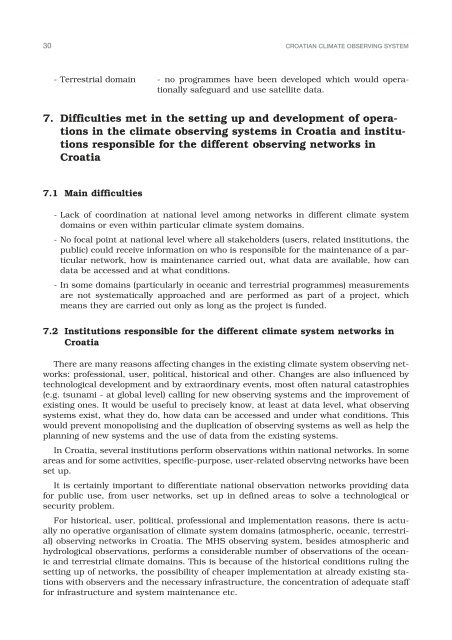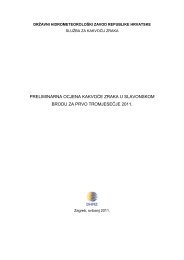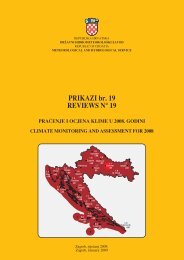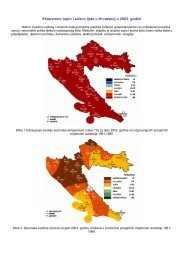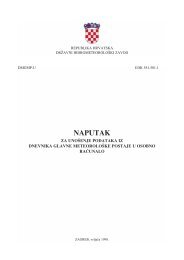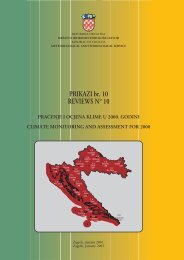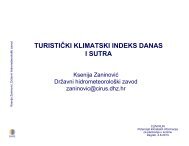CROATIAN CLIMATE OBSERVING SYSTEM
CROATIAN CLIMATE OBSERVING SYSTEM
CROATIAN CLIMATE OBSERVING SYSTEM
Create successful ePaper yourself
Turn your PDF publications into a flip-book with our unique Google optimized e-Paper software.
30 <strong>CROATIAN</strong> <strong>CLIMATE</strong> <strong>OBSERVING</strong> <strong>SYSTEM</strong><br />
- Terrestrial domain - no programmes have been developed which would operationally<br />
safeguard and use satellite data.<br />
7. Difficulties met in the setting up and development of operations<br />
in the climate observing systems in Croatia and institutions<br />
responsible for the different observing networks in<br />
Croatia<br />
7.1 Main difficulties<br />
- Lack of coordination at national level among networks in different climate system<br />
domains or even within particular climate system domains.<br />
- No focal point at national level where all stakeholders (users, related institutions, the<br />
public) could receive information on who is responsible for the maintenance of a particular<br />
network, how is maintenance carried out, what data are available, how can<br />
data be accessed and at what conditions.<br />
- In some domains (particularly in oceanic and terrestrial programmes) measurements<br />
are not systematically approached and are performed as part of a project, which<br />
means they are carried out only as long as the project is funded.<br />
7.2 Institutions responsible for the different climate system networks in<br />
Croatia<br />
There are many reasons affecting changes in the existing climate system observing networks:<br />
professional, user, political, historical and other. Changes are also influenced by<br />
technological development and by extraordinary events, most often natural catastrophies<br />
(e.g. tsunami - at global level) calling for new observing systems and the improvement of<br />
existing ones. It would be useful to precisely know, at least at data level, what observing<br />
systems exist, what they do, how data can be accessed and under what conditions. This<br />
would prevent monopolising and the duplication of observing systems as well as help the<br />
planning of new systems and the use of data from the existing systems.<br />
In Croatia, several institutions perform observations within national networks. In some<br />
areas and for some activities, specific-purpose, user-related observing networks have been<br />
set up.<br />
It is certainly important to differentiate national observation networks providing data<br />
for public use, from user networks, set up in defined areas to solve a technological or<br />
security problem.<br />
For historical, user, political, professional and implementation reasons, there is actually<br />
no operative organisation of climate system domains (atmospheric, oceanic, terrestrial)<br />
observing networks in Croatia. The MHS observing system, besides atmospheric and<br />
hydrological observations, performs a considerable number of observations of the oceanic<br />
and terrestrial climate domains. This is because of the historical conditions ruling the<br />
setting up of networks, the possibility of cheaper implementation at already existing stations<br />
with observers and the necessary infrastructure, the concentration of adequate staff<br />
for infrastructure and system maintenance etc.


